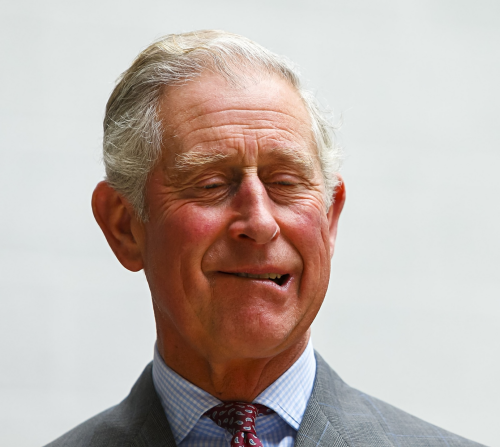
Charlie Is No Darling
It's In The Post
Like his mother, Charlie is supposed not to interfere in politics. Monarchists claim that that is one of the benefits of their feudal system. A politically neutral head of state, they claim, is one that all can accept regardless of their own beliefs.But although he lives a life apart from normal people Charlie believes he knows what is best for them. He has particularly strong opinions on architecture, organic food and homeopathy.
According to a 2014 BBC report Michael Meacher, Environment Minister in the last Labour Government, admitted in his own words that he got together “quietly” with Windsor “to try and ensure that we increased our influence within government” on climate change and genetic modification in agriculture. This behind the scenes manoeuvring was intended to “persuade (Prime Minister) Tony Blair to change course”. Meacher told the BBC that although this might have been in breach of the constitution he was “delighted” by it.
Windsor also tried to get the last Labour government to increase the number of grammar schools. The then Education Secretary David Blunkett said that when his interference was rejected Charlie “didn't like that”. Windsor also let other ministers at that time know what he wanted for complementary medicine and climate change
Charlie was successful with another Labour minister, Peter Hain. They shared an enthusiasm for complementary medicine. Hain was Secretary of State for Northern Ireland and used that position to set up a trial there. Windsor was unsuccessful in getting similar trials in Wales and England. Apparently he made no attempt in Scotland, which is interesting in light of what Alex Salmond referred to as his “genuine love of Scotland”.
Other Windsor interventions have included
- Criticism of the “learning culture” that he said “gave people hope beyond their capabilities”
- Attacks on modern architecture (see following section)
- Criticism of flood prevention arrangements in Somerset

Our future head of state: Admiral of the Fleet, Marshall of the Royal Air Force, Field Marshall, the Prince of Wales, the Duke of Cornwall etc. etc.
Taking Sides
In 2014 he made an even more dangerous intervention in politics by expressing his opinion on Russian interference in Ukraine, an issue requiring delicate handling by politicians and diplomats. This provoked a rebuke from the Russian president.
And this was not Charlie's only taking of sides in the affairs of other nations.
In 1976 he told John Kerr, former governor-general of Australia, of his support for Kerr's sacking of the government of Geoff Whitlam the previous year. Kerr had then invited the leader of the opposition Liberal Party to become Prime Minister in place of Whitlam.
"Please don't lose heart", Windsor urged in a hand-written letter to Kerr. "What you did last year was right and the courageous thing to do - and most Australians seemed to endorse your decision when it came to the point".
The Australian newspaper wrote that he had intervened "in a partisan way in our most divisive and convulsive political crisis".
Written By Hand
He also cannot resist sending handwritten letters to government ministers to tell them what he would like them to do. Of course, these letters get very special attention, unlike letters from any other citizen. Charlie knows that and he banks on the very special attention that is paid to what he writes.Charlie was helped by being allowed to read all cabinet memoranda. These included secret proposals for legislation and discussion documents that are kept secret from most citizens for thirty years.
Mr. Windsor was on the "standard circulation" list for these memoranda. The "precedent book" that contains this list had been kept in a locked cupboard in a locked office in a secure corridor at the Cabinet Office. For three years the Cabinet Office fought a freedom of information application from Republic in an attempt to stop the people of Britain knowing what was in it.
Privileged Access
That was not surprising. For the disclosure made clear that although Mr. Windsor had no official state position, he had the privilege of access to information only known to the prime minister, cabinet ministers and very senior civil servants. He and his principal private secretary were shown information that even junior government ministers are not allowed to see.
Although he likes to have a privileged part in government Charlie does not like to be accountable for it. He called his attempts to change policy “private conversations” and refused to comment on them.
How Charlie and the monarchists in government have conspired to stop the people knowing what is in his letters is described in our article about how the government has tried to suppress freedom of information to protect the Windsor family's privileges.
